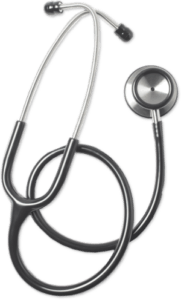With this plan, you can use any doctor, clinic, hospital or health care facility you want in our national network. To help you get the most from your benefits, you can select Tier 1 doctors and specialists from within our network. Our Tier 1 provider list is updated annually. You can also use freestanding facilities for certain services to help with additional cost savings.
- Annual Deductible: When you use Tier 1 providers, your annual deductible will be lower – $550 for individual and $1,650 for family. With network physicians not designated as Tier 1, the annual deductible is $750 for an individual and $2,250 for a family.
- Out-of-Pocket Limit: When you use Tier 1 providers, the out-of-pocket limit will be lower – $2,250 for individual and $6,750 for family. With network physicians not designated as Tier 1, the out-of-pocket limit is $2,750 for individual and $8,250 for family.
With this plan, there’s also coverage if you need to go out of the network. However, seeing an out- of-network provider will likely cost you more. If you need to see a specialist, a referral is not required.
Preventive care is covered 100 percent in the network. You don’t have to pay any out-of-pocket costs for age-appropriate preventive care as long as you use a network doctor.
Compare to help find the right health plan
Our comparison chart helps you find your best fit by listing important plan benefits side-by-side.
Summary
Network coverage
Both network and out-of-network providers covered
Primary care provider
Primary care provider not required—but choosing one is highly recommended
Copays
Copay due for certain services and prescriptions
Savings account options
Health reimbursement account (HRA) offered
Plan Details
| Individual | Family | |
|---|---|---|
| Deductible | $550.00 | $1,650.00 |
| Out-of-pocket Limit | $2,250.00 | $6,750.00 |
Are your providers in network?

Network coverage
Network coverage plays a big part in delivering you cost savings and quality care. With the network, you'll have access to a group of health care providers and facilities that have a contract with UnitedHealthcare. Finding providers in the network is easy when you use Provider Search

Stay in the network
To help save on costs, choose care and services from within our network.

Spot the Tier 1 dot
You may pay less for care when you choose Tier 1 doctors and facilities because they offer the greatest value from your health care benefits.

Find the Freestanding Facilities symbol
You may pay less for care when you receive services from a freestanding facility instead of a hospital. Freestanding facilities offer outpatient diagnostic services, lab and x-rays, scopic procedures and outpatient surgery.

Primary care provider
While this plan does not require you to have a primary care provider (PCP), choosing one for yourself and each member is highly recommended. Your PCP is your health guide – coordinating your care, helping you avoid cost surprises and supporting you in achieving your best health.
It’s easy to find and choose a network PCP – just go to Provider Search to get started.
Choosing your Primary Care Provider
Click on the Provider Search link above to find the network for your selected plan.
Then follow these steps:
- Under “What type of Medical Care can we help you find near”, click Change Location, fill in your location information, and click Update Location.
- Under “Find Health Care by Category”, select People > Primary Care > All Primary Care Providers to see a listing of PCPs.
- Scroll through the listing and select the name of the network PCP you’d like to coordinate your care.
Click on the PCP’s name for the 14-digit Provider ID number — write it down so that you can provide that information when you enroll.
Important: For health plans requiring a PCP, a PCP will be selected for you and your covered family members if you don’t pick one by the enrollment deadline. You can change your PCP anytime at myuhc.com.
Copays and cost sharing
Most health plans share the same idea: there’s how much you pay for the cost of care, when you pay for it, and what percentage of those costs you and your plan share. It can all be a little confusing, especially when you add in words like “deductible” and “copay”.
To make it easier, here’s an example of how health plans work.

At the start of your health plan year...
You're responsible for paying 100% of the costs for covered health care, up until you reach your deductible. The deductible is the amount you pay before the plan starts sharing costs. Age appropriate preventive care is covered 100% as long as you use a network provider.

About COPAYS...
Some health plans have a copay, which is a fixed amount you pay each time you see a provider or purchase a prescription. Because copays don't count toward your deductible, you're responsible for paying 100% of your copay up until you reach your out-of-pocket limit.

When you reach your DEDUCTIBLE
Coinsurance kicks in and your health plan starts sharing a percentage of these costs with you, up until you reach your out-of-pocket limit.

When you reach your OUT‑OF‑POCKET LIMIT
The most you'll have to pay for the costs of health care in a plan year is your out-of-pocket limit. Once this limit is reached, your health plan covers you at 100% for the rest of the plan year.
Health Reimbursement Account
This plan comes with a health reimbursement account (HRA) — an account funded by your employer to help you pay for medical expenses.
How your HRA works
Using the money in your HRA is easy.
- Your HRA automatically pays for eligible medical expenses first, including deductibles. As long as money is available in your HRA, you won’t pay any health care expenses.
- If all the money in your HRA is spent, you will need to pay for your covered services until your plan’s out-of-pocket limit is met.
- To help you see how and to whom claims have been paid, you’ll have access to a monthly Health Statement. You’ll also find balances and claim activities on myuhc.com.
- Unspent HRA money may rollover to the next plan year. Please check with your employer.
Services covered
With this plan, preventive services are covered at 100%. Here’s just a partial list of what’s covered – for the full list view full benefits

Doctor Office Visits and Labs
Emergency and Outpatient Care
Mental Health and Substance Disorder Service
Pregnancy and Newborn Care
Health and Wellness
